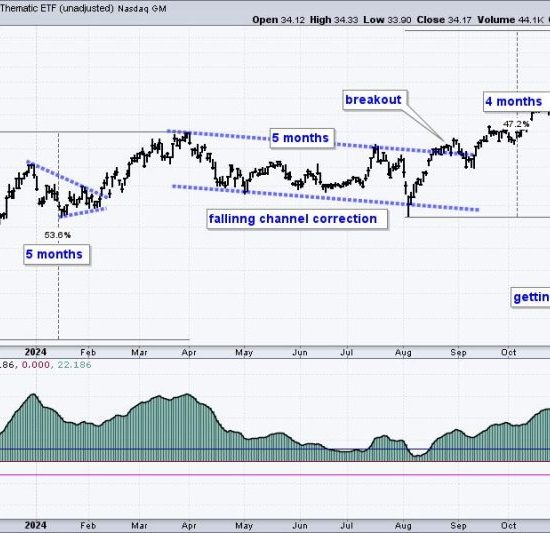As we delve into the heart of the matter, one must first understand the basic concept of what is IWM. IWM is an ETF – or Exchange-Traded Fund – that replicates the Russel 2000 index. This index measures the performance of approximately 2,000 small-caps in the US equity market. The ETF was created by iShares and is one of the most popular ETFs for investors looking to gain exposure to small-cap stocks.
We’ve seen the IWM surge early in 2021, but it has recently experienced a somewhat stagnated phase which may be a cause for concern for some. However, this stagnation should not be a deterrent for potential investment opportunities. In fact, it should be viewed as a normal part of the ebb and flow of market trends.
Now, there are key factors which indicate why the IWM might be poised to soar. The first factor being the Covid-19 pandemic. As economies around the world are recovering from the pandemic, small-cap stocks can be some of the biggest winners, due to the major role they play in the domestic economy. With vaccination rollouts proceeding well and more businesses reopening, the prospect for small-cap stocks is looking promising.
The second factor is the renewed interest in the small-cap space. While large-cap stocks might present a safer and more stable investment opportunity, they may not offer the potential for high growth that small-cap stocks can. This makes small caps an attractive option for investors looking for aggressive growth opportunities.
The third factor is the economic stimulus from governments worldwide. This support has led to ample liquidity in the market which, in turn, could make its way into small-cap stocks, pushing their prices higher.
Unexpected company news or significant developments within small-cap companies, such as successful product launches or burgeoning partnerships, can also significantly influence a small-cap’s trajectory, providing an outstanding opportunity for astronomical returns.
Looking at the historical data, small caps have outperformed large caps over most long-term periods, especially during the recovery periods following major downturns. The IWM gives investors a fantastic portfolio of diverse small caps, spreading the risk and giving you possible exposure to the next big company.
However, it’s important to note that while potentially profitable, investing in small-cap stocks comes with its own set of risks. The volatility of the market is higher than that of large caps, and they are often more sensitive to economic changes. Therefore, it is advisable to have a well-diversified portfolio and not overly rely on only small caps for investment returns.
From an analyst’s perspective, there’s a lot to like about IWM at the moment. With currently undervalued portfolios, a recovering economy, and historical trends all pointing towards growth for small caps, now may indeed be the opportune time for an investment in IWM.
With all that being said, the importance of due diligence can’t be overstressed. Investors should always do comprehensive research or consult a financial advisor before making any investment decisions. After all, in the world of investment, the only certainty is uncertainty. But as with any gamble, the potential rewards could very well be worth the risk. It seems that the stage is set for IWM to soar, this might be the opportune moment to catch the tide.




